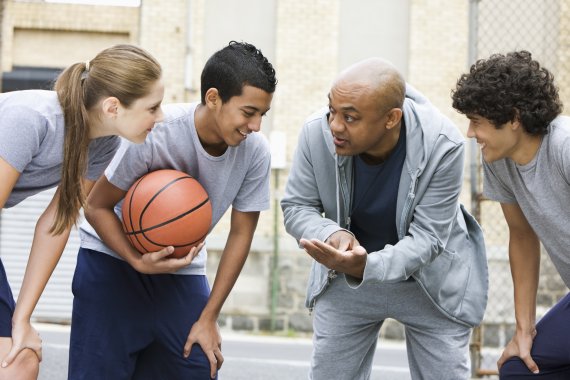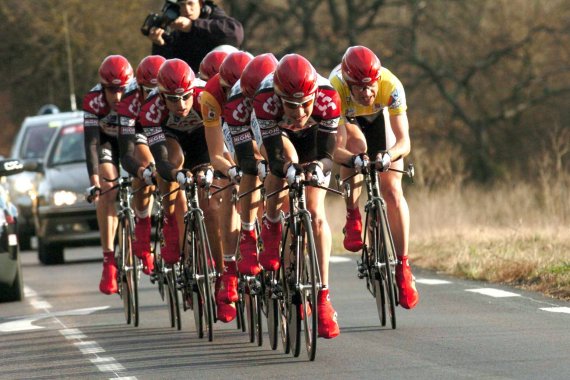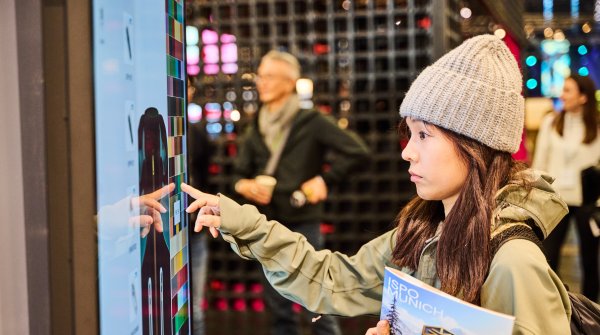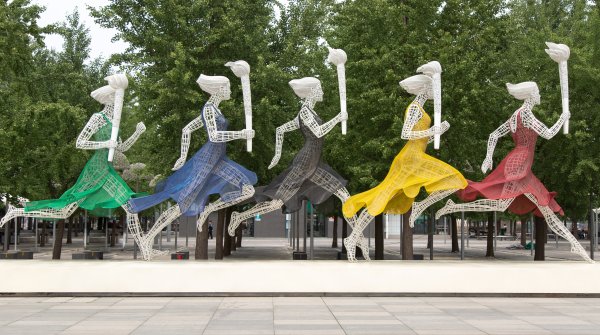
Stefan Ludwig sums up the enormous importance of clubs and communities in Europe and around the world. "Sport brings people together, whether in a handball club, at a public viewing or in the gym. What is otherwise great became a problem in the pandemic," explains the partner and head of the sports business group at Deloitte. "Individual sports were still possible, of course, but training in a community not only brings fun, but also additional motivation."
This opinion is also shared by Prof. Dr. Alexander Ferrauti, Presidium Member of the European College of Sport Science (ECSS). In an interview with ISPO.com, he is particularly concerned about the long-term health consequences of the sports restrictions for people in the Corona pandemic: "The lack of exercise damages the entire organism, from the degradation of skeletal muscles to the disruption of neuromuscular functions and problems for the cardiovascular system. Even the metabolism suffers."
Seniors are particularly affected, for whom regular exercise in clubs and communities is essential. Better prospects than the older generation have children if they were to find their way back to sports and communities after the Corona break. Ferrauti: "That's where you have to find motivating programs and use the group dynamic."
There may well be synergies between traditional sports communities such as clubs and new networks that have emerged in the pandemic. Ferrauti cites the Zwift software as an example, where cycling fans from all over the world can put their racing bikes and mountain bikes on a roller at home and then ride virtual races against athletes from all over the world.

Corona changed the world of clubs and communities. People were about 40 percent less active in sports during the first Corona lockdown in Europe. At the same time, according to an international study led by the University of Frankfurt, the proportion of people at risk of depression increased threefold - partly because the social component of sport in communities and clubs was missing. This shows the immense social importance of playing sports together.
In the study, 20 scientists from 14 countries warn of the serious long-term consequences of sporting "Governments and those responsible for the health system should take our findings seriously," emphasises the team led by Dr Jan Wilke from the Institute of Sport Sciences at Goethe University Frankfurt.
The "Sports Retail Study", for which Deloitte surveyed more than 11,000 people in 20 European countries at the beginning of 2021 on their sports behaviour and consumption, also brings alarming results. The percentage of people who exercised several times a week dropped from 49 to 43 percent compared to before the pandemic. The decline was seen in all European countries - with the exception of states like Sweden, where there was no hard lockdown.
Instead of playing sports in communities, people were drifting in front of screens: Over 35 percent said they consumed more sports entertainment. The sportswear industry also suffered from the restrictions: 30 percent of respondents in Europe spent less on sportswear and equipment during Corona.

Also the in sports clubs and communities is alarming. is alarming. A study on this ("On the situation of sports clubs") only exists for Germany, where the number of adult members in sports clubs fell by a good 8 percent between the two survey points in March 2020 and the end of 2020/beginning of 2021.
"Furthermore, the data show that the departures of sports club members are also primarily at the expense of those social groups that were already underrepresented in sports clubs before the Corona pandemic: People with a migration background, groups that are less educated, but also women," the study states. Even though the club system in Germany is particularly strong in a European comparison, the results can also be applied to sports communities across the continent.
Since the energy balance is positive due to the lack of sporting activity - more calories are added than are lost - the body constitution of many people also changes. Expert Ferrauti cites two alarming figures: Without the usual sporting activity, the maximum oxygen transport capacity in the body would drop by seven percent within two weeks.
In the same period of time, the muscles would also degrade by six percent without activity: "In old age, it happens even faster. There's no way back then, because seniors can't make up for these deficits."
Future studies will have to show how sporting inactivity during Corona will affect future morbidity figures, such as heart attacks. However, healthcare costs in Europe are more likely to rise in the future: According to US data, annual expenditures for inactive or insufficiently active individuals are increased by 1200 and 600 euros, respectively.
The European Union and national governments are trying to support sport and its clubs and communities through various measures. For example, the Irish Government has allocated EUR 70 million to support national sports federations and organisations, as well as sports clubs and grassroots organisations. In the Lithuanian capital Vilnius, sports organisations were exempted from rents, property taxes and sports equipment rental costs for six months.
A Romanian government programme encouraged 30,000 children to participate in sports. Each child received a voucher worth 100 euros for the purchase of sports equipment, as long as they remained a member of the association/club for one year. Ferrauti: "We need initiatives and new motivation for sport after the Corona pandemic. Anything is better than doing nothing."

 Sports BusinessAI in online retail: 8 opportunities for sports retail
Sports BusinessAI in online retail: 8 opportunities for sports retail
- Awards
- Mountain sports
- Bike
- Fitness
- Health
- ISPO Munich
- Running
- Brands
- Sustainability
- Olympia
- OutDoor
- Promotion
- Sports Business
- Textrends
- Triathlon
- Water sports
- Winter sports
- eSports
- SportsTech
- OutDoor by ISPO
- Heroes
- Transformation
- Sport Fashion
- Urban Culture
- Challenges of a CEO
- Trade fairs
- Sports
- Find the Balance
- Product reviews
- Newsletter Exclusive Area
- Magazine



